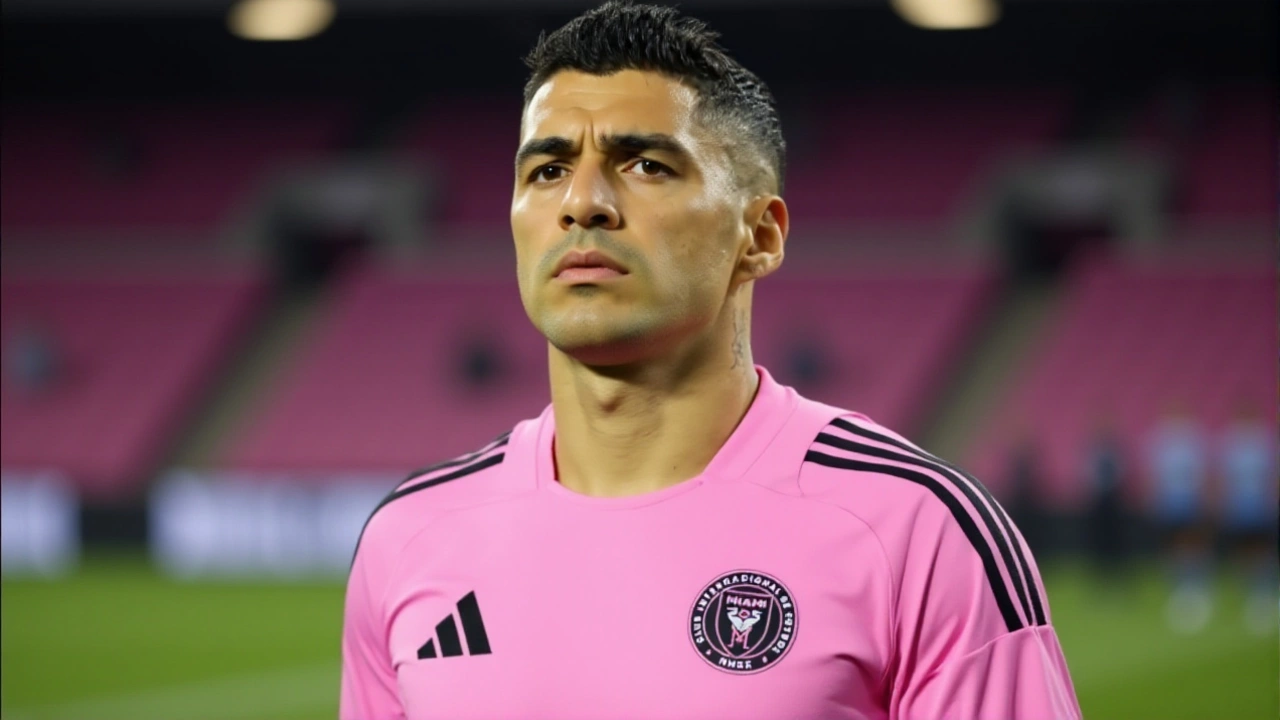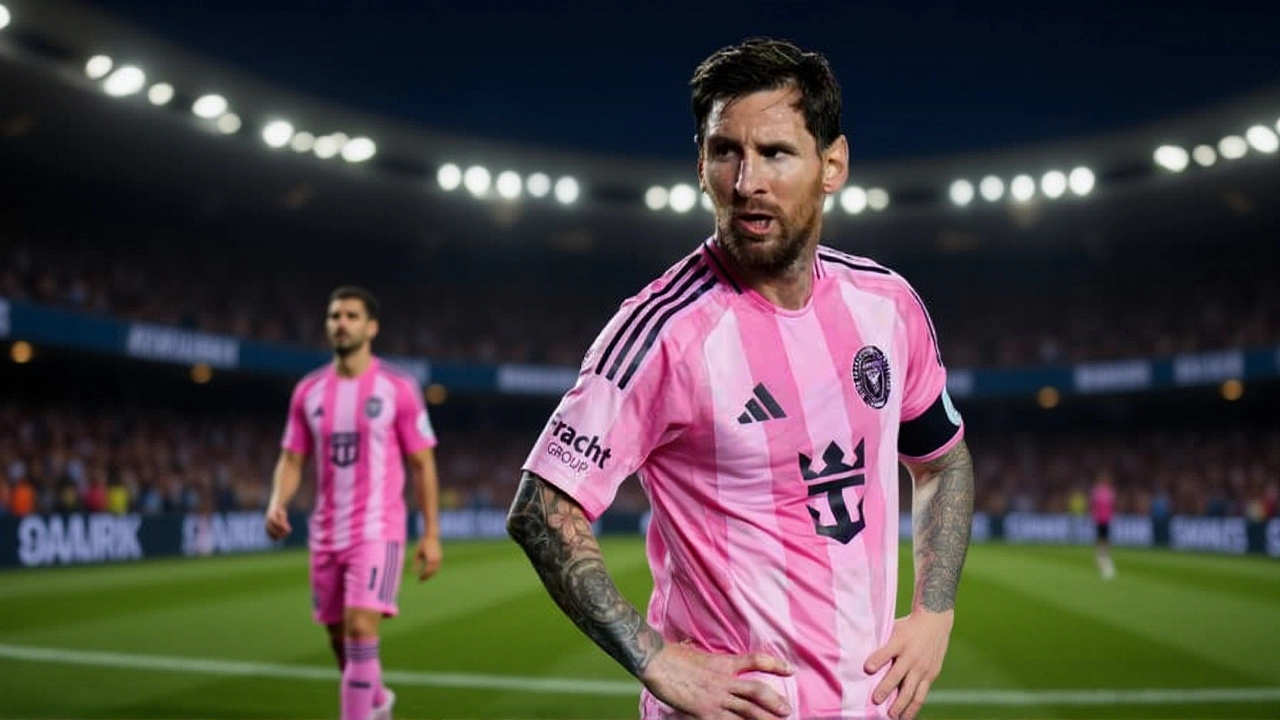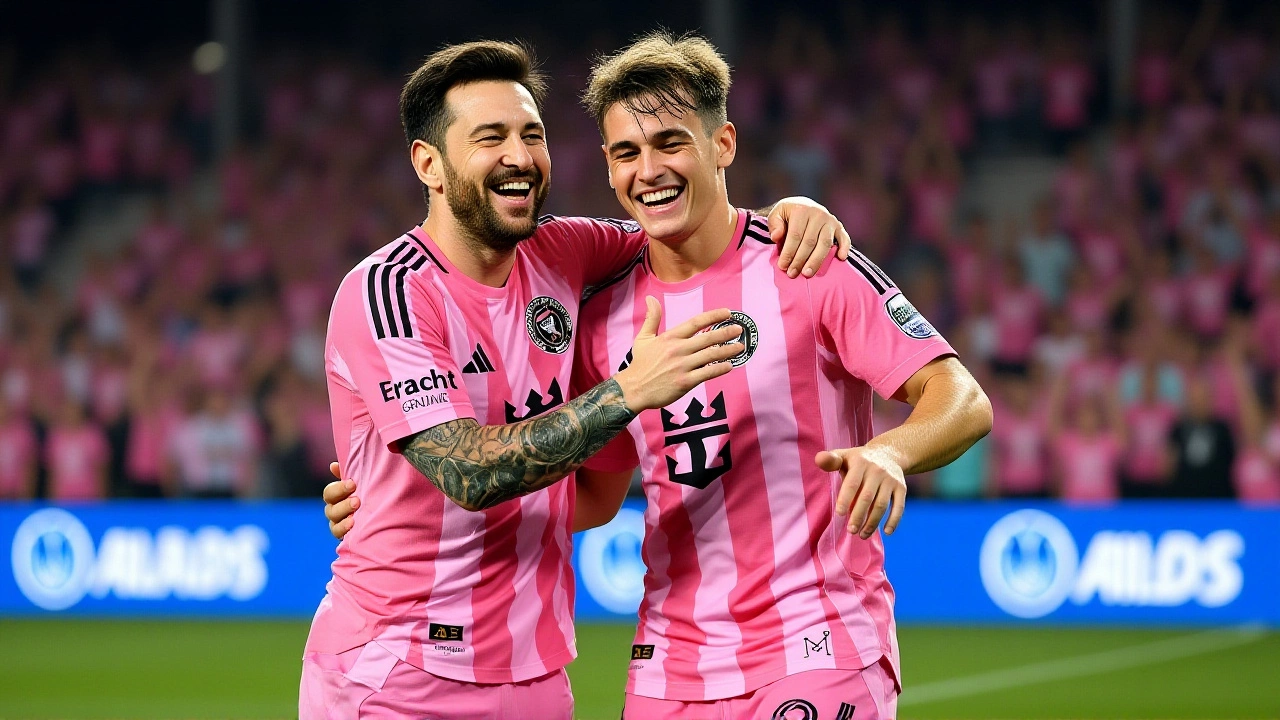On a crisp November evening in Cincinnati, Lionel Messi didn’t just play football—he rewrote history. The Argentine legend delivered his fifth goal and sixth assist in the Audi 2025 MLS Cup Playoffs TQL Stadium on Sunday, November 23, 2025, helping Inter Miami CF defeat FC Cincinnati 3-1 in the Eastern Conference Semifinal. The win sent Inter Miami to the Conference Final, while Cincinnati’s dream of a deep playoff run ended in front of a roaring, sold-out crowd in the West End neighborhood of Cincinnati, Ohio.
History Made in the Heart of Ohio
Messi’s performance wasn’t just impressive—it was unprecedented. By the 65th minute, he had become the first player in MLS Cup Playoffs history to reach 12 combined goals and assists in a single postseason. The YouTube highlights, posted the next day, captured the moment clearly: at 4:38, he slotted home a low finish after a one-two with Julián Álvarez, and at 6:26, he threaded a pass through three defenders to set up Rodrigo Schlegel for the dagger goal. "It’s averaging over three and a half goals per game as a team," the commentator noted, underscoring how Messi’s presence has transformed Inter Miami from a star-studded experiment into a genuine title contender.For FC Cincinnati, the loss was a bitter pill. They entered the match as the No. 2 seed in the Eastern Conference, having dominated the regular season with 17 wins and a +22 goal differential. Their 3-0 home win over Inter Miami in July had been a statement. But on November 23, the script flipped. Cincinnati’s defense, usually rock-solid, looked rattled by Messi’s movement and the speed of Inter Miami’s counterattacks. "We knew he’d be dangerous," said head coach Pat Noonan post-match. "But you can’t prepare for what he does in real time. He sees things no one else does."
The Streaming Showdown: Apple TV’s Monopoly in Action
The match was broadcast exclusively through Apple TV’s MLS Season Pass, the only legal way to watch live in the U.S. and Canada. The service offered a promotional rate of $5.99/month for the first six months, then $12.99/month—with renewal at $14.99/month. That pricing structure, designed to hook casual fans, drew criticism from longtime MLS supporters who felt the cost was excessive for a single playoff match. "I paid $150 just to watch this game," said Cincinnati fan Marcus Rivera, who also subscribed to the Spanish-language feed. "It’s not just the price. It’s that you can’t even get a free preview on local TV." The confusion around kickoff time added to the frustration. While FC Cincinnati’s website listed 2:00 p.m., multiple reputable outlets—including Cincinnati.com and the MLS official app—confirmed 5:00 p.m. ET. Fans arrived early, some missing the opening kickoff. "I showed up at 1:30," said Emily Tran, a season-ticket holder. "I waited two hours. The stadium clock even said 2:00. It was a mess."
Global Reach, Local Impact
The broadcast’s global reach was staggering. MLS Season Pass offered localized feeds across Latin America, Europe, and parts of Asia—with India’s version priced at just ₹199/month (roughly $2.30). In Argentina, where Messi is practically a deity, the match drew over 1.2 million concurrent viewers on Apple TV, according to internal reports. Even in regions without live coverage, the YouTube highlights video—titled "FC Cincinnati vs. Inter Miami CF | Full Match Highlights | 2025..."—gained 8.7 million views in 48 hours, with the Spanish-language preview alone surpassing 2.1 million views.Behind the scenes, the match underscored the magnitude of Apple’s $2.5 billion, 10-year MLS rights deal, which began in 2023. With no over-the-air broadcasts, the league has bet everything on subscription revenue. For Inter Miami CF, the payoff is clear: global brand exposure, merchandise spikes, and a new generation of American fans who now know Messi’s name better than their own neighbors’.

What Comes Next? The Conference Final Looms
Inter Miami will now face either the Philadelphia Union or New York City FC in the Eastern Conference Final on November 29 or 30, 2025. If they win, they’ll advance to the MLS Cup final in December—a scenario that now feels inevitable. Meanwhile, FC Cincinnati’s 2025 campaign ends with a 21-8-5 record, their best in club history. "We didn’t win the trophy," said midfielder Lucas Zelarayán. "But we showed what this city can do. This isn’t the end. It’s the beginning."For now, the spotlight remains on Messi. He’s not just playing in MLS—he’s redefining it. And with every pass, every goal, he’s turning a league once dismissed as a retirement destination into a global spectacle.
Frequently Asked Questions
How did Lionel Messi achieve 12 goal contributions in the 2025 MLS Cup Playoffs?
Messi reached 12 combined goals and assists across five playoff matches in 2025, including five goals and six assists in the postseason. His fifth goal came against FC Cincinnati on November 23, and his sixth assist sealed the win. He became the first player in MLS history to reach double-digit contributions in a single playoff run, surpassing previous records held by Carlos Vela and Diego Valeri.
Why was the match only available on Apple TV?
Since 2023, Apple TV holds exclusive U.S. broadcast rights to all MLS matches under a 10-year, $2.5 billion deal. This means no traditional TV networks or free streaming platforms can air games live. While this gives Apple massive control, it’s also pushed MLS toward a subscription-based model, sparking debate over accessibility for casual fans.
What was the significance of FC Cincinnati’s 3-0 win over Inter Miami in July 2025?
That July 16 victory was the first time Inter Miami had been shut out in a regular-season match since Messi joined the club. It proved FC Cincinnati could contain their attack and gave fans hope they could replicate it in the playoffs. But the 0-0 draw in Miami weeks later showed Inter Miami had adapted, making the November rematch a true test of evolution—and ultimately, Messi’s dominance.
How did the kickoff time confusion affect fans?
The discrepancy between FC Cincinnati’s website listing 2:00 p.m. and official sources confirming 5:00 p.m. ET left hundreds of fans waiting for hours at TQL Stadium. Social media erupted with complaints, and the club later issued a statement blaming a "technical error" on their ticketing portal. The mix-up highlighted the risks of relying on digital platforms without centralized verification.
Is MLS becoming too dependent on global stars like Messi?
While Messi’s presence has boosted MLS’s global profile and subscription numbers, league officials insist they’re investing in homegrown talent too. Still, the fact that Inter Miami’s playoff success hinges so heavily on one player raises questions about sustainability. Without Messi, would Inter Miami still draw 25,000 fans every week? That’s the challenge MLS now faces.
What’s next for FC Cincinnati after this loss?
FC Cincinnati will focus on rebuilding for 2026, with plans to strengthen their defense and add more midfield creativity. Their 21-win season marks a new standard, and the front office has signaled intent to pursue high-profile signings. But for now, the club’s identity is shifting—from underdog to contender—and they’ll need more than one playoff run to prove they belong among the league’s elite.
